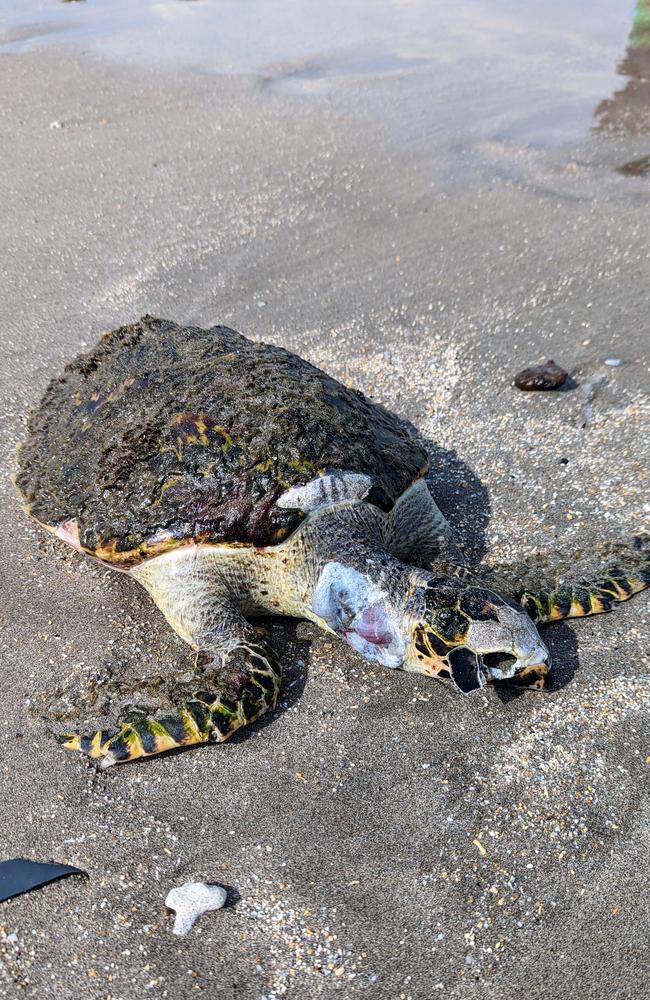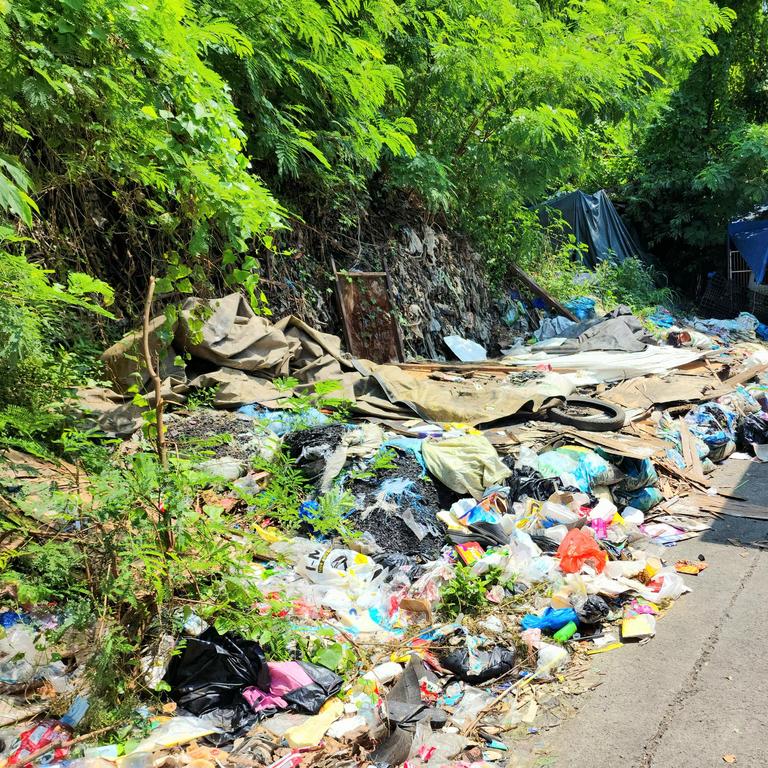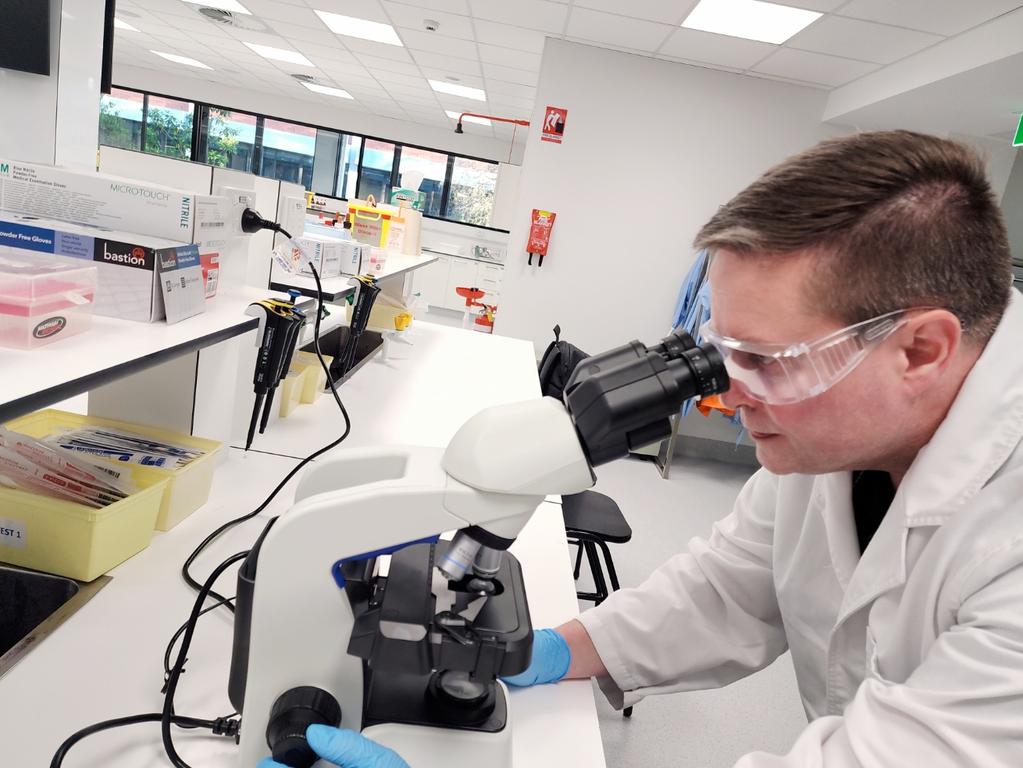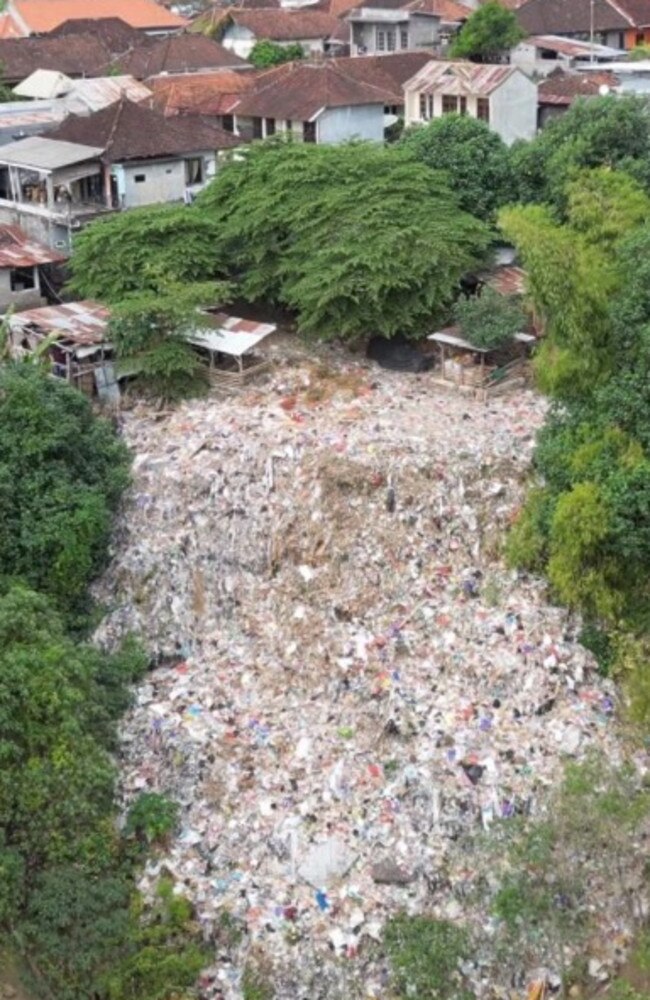Triggering reality of Bali’s huge waste problem
Bali is known for its pristine beaches – but there’s also a dark side to the island and one Aussie was shocked to learn just how bad it is.
When Philip Major got a call from a mate living in Bali about the island’s tragic waste issue, he knew something had to be done about it.
Waste management has long been a problem at the popular destination with recent photos of Kuta beach — a tourist island located in the south — showing it overrun with mounds of plastic bottles, food containers and abandoned shopping bags.
Mr Major, the owner of Aussie clean tech start-up Cyclion, was sent a heartbreaking photo of a dead turtle, sadly one of many wildlife impacted by the polluted waters.

As such, he has plans to turn all the household waste in Bali, which often ends in waterways, into energy — a multimillion-dollar project that he’s already started in the Philippines.
It’s a venture that he’s put his life savings into as he’s determined to make a difference.
“I am moved every time I see large piles of rubbish emitting dangerous gases and damaging the health of families with young children,” Mr Major, from Brisbane, told news.com.au.
“Also, when I see beautiful beaches littered with rubbish or dead wildlife that have died from eating plastics.

“These are the things that have given me the determination to push through the challenges to see real solutions to make a difference in whatever way I can.”
Mr Major’s business converts household rubbish, including plastics, to fuel or electricity in an environmentally friendly way.
“This process has similarities with doing your washing,” he explained.
“Visualise a washing machine: you toss in clothes, detergent, and a few cycles later, the dirt is gone and you get clean clothes.
“Likewise, the Cyclion process treats household rubbish through our special detergent (our proprietary catalysts) and cycles of ‘washing’ until it’s reusable and in a form that can be converted to fuel and electricity.

“Unlike traditional waste to energy, we do not burn the rubbish but instead soak the rubbish in special liquid salts to break it down to oil.”
He first heard about waste to energy back in 2013 and thought it was too good to be true, but after he did his research, he discovered various technologies that did convert waste to energy, such as incineration.
“However, there were big problems with them, so I looked at those problems, did significant research, and came up with solutions to make it work at low temperature, low pressure, environmentally friendly, and financially viable at a small scale.”
In the year the tech start-up has been running, Mr Major has already secured work with the Philippines government to help eradicate its huge waste problem.

It comes after the start-up identified South-East Asia as the key area for its first waste-to-energy plant, with nearly a third of the world’s waste dumped throughout the region.
“We intend to deliver the first 50 tonne per day (TPD) module at the end of 2024,” Mr Major told news.com.au.
“That will then expand to 18x 50 TPD through 2025 to process 900 TPD of household rubbish in Manilla.”
The $150 million recycling plant project in Manila, which will be able to process 900 tonnes of waste every day once fully operational, is set to begin construction in 2025.
“Along with solvents, catalysts, ionic fluids, and nanotechnology, we use carefully selected molten salts that are in liquid form at or near room temperature,” he said about how it works.
“This forms the foundation of the Cyclion process, enabling minimal or no pre-treatment and the washing machine-like process.”
He said it also allows their plants to be modular and scalable in construction, adding that they have large algae tanks to purify water, treat exhaust gases and convert the carbon dioxide produced during the process to oxygen.
“This is an essential part of the process as the end product intends to replace fossil fuels as an energy source.”
Mr Major will be taking the concept to Jakarta in February where he will meet with investors who have taken a strong interest in his project.
“We intend to work with all levels of government and local communities to establish one project and then grow from there,” he said.
“Our ideal [goal] is to set up a local company in Indonesia, staffed by locals, that will oversee the development of projects throughout Indonesia.”

Mr Major said he not only wants to put an end to the landfills particularly in Bali and Jakarta, but he is determined about helping local residents who often rely on selling waste as a form of income.
“Some of these locals are really poor and get money by salvaging plastics and various things from landfills,” Mr Major said.
“We understand that it is their livelihood and want to make sure we employ these people and train them up so they can participate in potentially working on the project — or pay them to help clean up the vicinity.

“That way they have got some employment to support them and their families.”
Indonesia’s co-ordinating minister for Maritime Affairs and Investment, Luhut Binsar, said if Bali’s waste issue continues without “significant and rapid improvement” the problem will become “uncontrollable” — and impact tourism.
He has suggested part of Bali’s tourist tax be spent on addressing the issue.
“I think it [tourism tax] is good for Bali; why not use it to look after its waste,” he said in August after signing a new conservation agreement at the Bali Turtle Special Economic Zone.
In July, Bali Governor Wayan Koster confirmed as of next year tourists will need to pay 150,000 Indonesian rupiah (about $15) to visit the popular island.
Videos of Bali’s waste problem often go viral with Gary Bencheghib, a French filmmaker living in Indonesia, sharing a clip of an “open dump” 50 metres high covered in trash.
It is one of many open dumps around Bali.
Gary is also doing his part to help combat the waste issue. He is part of a dedicated team called ‘Sungai Watch’ designed to “protects waterways in Indonesia”.
Since establishing the not-for-profit organisation in October 2020, Sungai Watch, comprised of a team of 83 full-time members have collected a total of 868,582kg of waste, according to its 2022 Impact Report.
Indonesia is among the worst contributors to plastic pollution, with 200,000 tonnes of plastic washing into the ocean, according to a study published by the journal Nature Communications in 2017.
Originally published as Triggering reality of Bali’s huge waste problem





